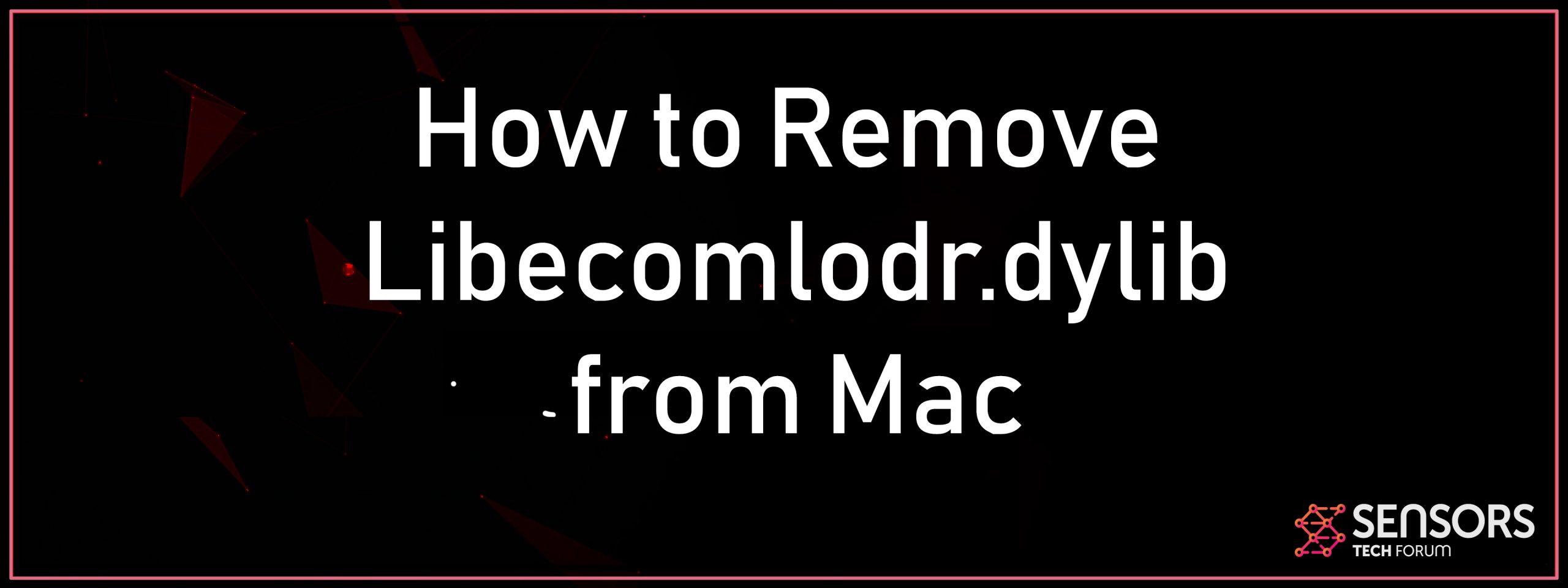Libecomlodr.dylib is an unwanted software for Mac that aims to send out a lot of different types of advertisements to your Mac. The software’s primary purpose is to enter your Mac as a legitimate program, but instead transfer you to many third-party websites.
Libecomlodr.dylib Virus
Libecomlodr.dylib is an app that has a tendency to affect Mac operating systems. Since it lands on Mac systems without individuals’ understanding, it is taken into consideration as an infection. Affected customers often report the app by calling it Libecomlodr.dylib infection. The truth is that Libecomlodr.dylib is yet an additional possibly undesirable program that targets macOS. It can act like a regular adware by displaying great deals of bothersome ads or like a typical internet browser hijacker. Once it is started on a Mac, it can impact major web browser preferences by establishing the homepage, default internet search engine as well as new tab web page to lots suspicious online search engine.
Unwanted programs like Libecomlodr.dylib are spread out through dubious techniques that deceive users into performing them on their Mac systems. The moment such a program is begun on the maker, it might trigger tracking modern technologies to spy on specific on-line activities.
Libecomlodr.dylib Redirect
We advise that you take into consideration the removal of Libecomlodr.dylib and all files associated with this Mac infection. In our guide, you will certainly discover instructions on how to remove SearchWebSvc and also how to bring back the safety and security of the afflicted system.

Threat Summary
| Name | Libecomlodr.dylib |
| Type | PUA for Mac OS |
| Short Description | A suspicious application that hijacks Safari and also Chrome internet browsers for Mac. Carries out internet browser alterations without your expertise. |
| Symptoms | The homepage, new tab web page and also internet search engine in preferred internet browser may be set to display scam internet search engine. Internet browser slowdowns might occur as a result of boosted number of online advertisements. The program might start every single time you start the affected Mac. |
| Distribution Method | Via software bundling. |
| Detection Tool |
See If Your System Has Been Affected by malware
Download
Combo Cleaner
|
User Experience | Join Our Forum to Discuss Libecomlodr.dylib. |
Libecomlodr.dylib Virus – More Information
Libecomlodr.dylib is a possibly unwanted program that shows up on Mac operating systems without individuals’ permission. The unexpected and also unexpected appearance of this program makes several victims think that Libecomlodr.dylib is a virus. The bright side is that just like many similar apps the application is not created to cause damages to systems it impacts. The bad news is that this possibly undesirable program can collect sesitive information, alter main web browser settings as well as supply numerous sorts of ads that might be connected to damaged websites.
One more problem that might be a result of the
Libecomlodr.dylib pop-up pop-up is intensive internet browser mishaps. To fix this concern you require to reactivate the tool along with relaunch the browser by holding the shift trick down. Afterwards you should eliminate all unidentified profiles in addition to phony growths. You need to also reset your internet search engine along with homepage, if required.
If the conclusion of these steps does not settle the trouble as well as the pop-up keeps showing up on your internet browser, take a look at our matching elimination guides in addition to learn exactly how to entirely eliminate the Redfunchicken pop-up.
So the minute Libecomlodr.dylib takes care of to contaminate a Mac operating system, it becomes able to use some changes that reveal the system in jeopardy of serious malware infections. As soon as begun on your Mac, Libecomlodr.dylib “virus” changes some major web browser settings in order to become able to spy on your online activities as well as send collected information to its servers. The program was reported to press an extremely frustrating web browser hijacker on your Mac
This is often realized with the help of tracking technologies like cookies, web signs, scripts, and others. As a result, the Libecomlodr.dylib unwanted program might obtain information like:.
- Checked out Links as well as sites.
- Internet browser’s home page.
- Browse inquiries.
- Look queries on the gone to website.
- Kind of made use of web browser.
- Operating system kind.
- Internet method (IP) address.
- Geographic location.
- The domain name of present Access provider (ISP).
Purposes of information collection are not quite clear. On the one hand, the owners of this undesired program might make use of data documents for the launch of targeted marketing campaign. If this happens, your impacted internet browser will be inundated with a great deal of frustrating ads that try to trick you to see bogus/harmful websites. On the other hand, the owners of Libecomlodr.dylib Mac “virus” program may release collected details on dark web markets for economic revenue.
An infection with Libecomlodr.dylib usually occurs after the installment of an additional cost-free software program. The spread method is related to applications that include added programs in their installers. The visibility of additionals is frequently hidden in the Advanced/Custom setup step of applications’ installers. So it is highly recommendable to review the information noted there before you finish the setup process. By doing this you can prevent undesirable extra programs from accessing your system.
The existence of Libecomlodr.dylib on your Mac might cause some major system safety as well as privacy-related concerns. To avoid all unpleasant concerns that may come as a result of having the SearchWebSvc program on your Mac, navigate to the elimination guidelines below and do away with this unwanted and possibly unsafe program.

How to Remove Libecomlodr.dylib Virus from Your Mac
In order to get rid of Libecomlodr.dylib along with all entrances it developed on the system, you ought to complete numerous elimination action in a precise order. The guide below presents you hands-on and automated removal technique. In order to fully remove data mounted by unwanted programs and reinforce macOS protection, we recommend that you integrate the steps. The hand-operated Libecomlodr.dylib removal may be fairly a challenging procedure that needs advanced computer system skills. If you do not really feel comfortable with the manual steps, browse to the automatic part of the overview.
In case you have further concerns or need extra assist with the elimination process, do not hesitate to leave us a comment.
Steps to Prepare Before Removal:
Before starting to follow the steps below, be advised that you should first do the following preparations:
- Backup your files in case the worst happens.
- Make sure to have a device with these instructions on standy.
- Arm yourself with patience.
- 1. Scan for Mac Malware
- 2. Uninstall Risky Apps
- 3. Clean Your Browsers
Step 1: Scan for and remove Libecomlodr.dylib files from your Mac
When you are facing problems on your Mac as a result of unwanted scripts and programs such as Libecomlodr.dylib, the recommended way of eliminating the threat is by using an anti-malware program. SpyHunter for Mac offers advanced security features along with other modules that will improve your Mac’s security and protect it in the future.
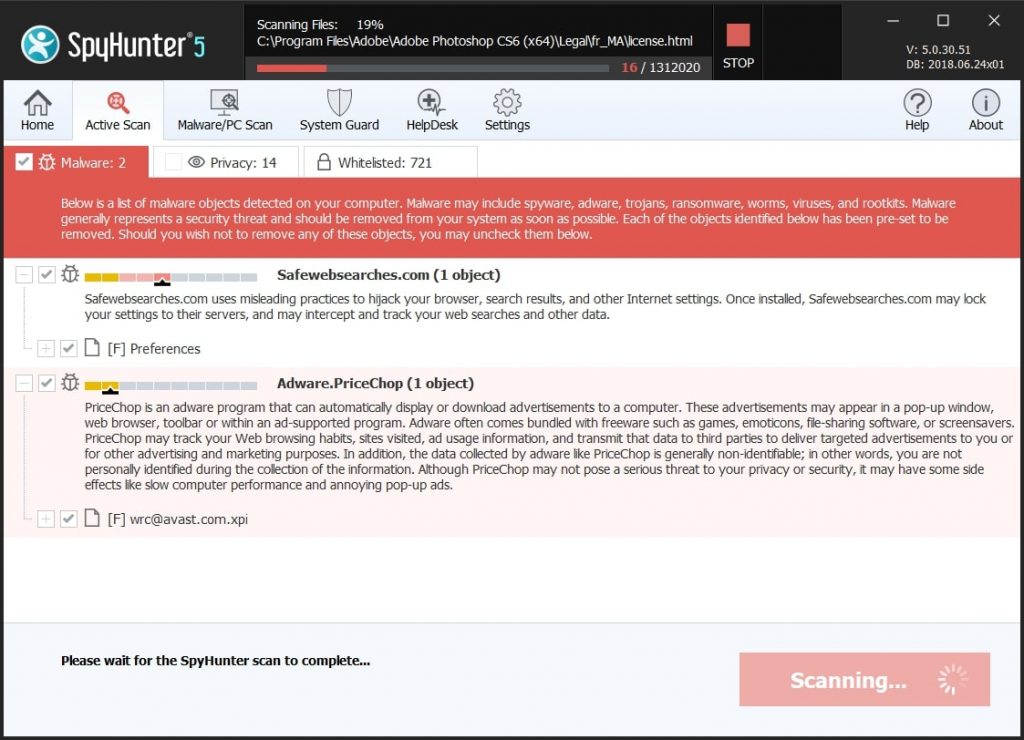
Quick and Easy Mac Malware Video Removal Guide
Bonus Step: How to Make Your Mac Run Faster?
Mac machines maintain probably the fastest operating system out there. Still, Macs do become slow and sluggish sometimes. The video guide below examines all of the possible problems that may lead to your Mac being slower than usual as well as all of the steps that can help you to speed up your Mac.
Step 2: Uninstall Libecomlodr.dylib and remove related files and objects
1. Hit the ⇧+⌘+U keys to open Utilities. Another way is to click on “Go” and then click “Utilities”, like the image below shows:
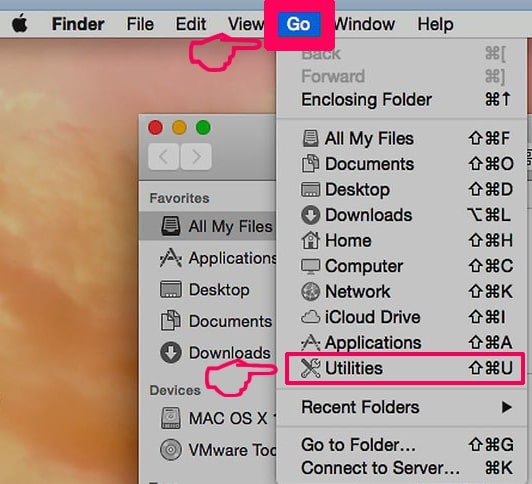
2. Find Activity Monitor and double-click it:
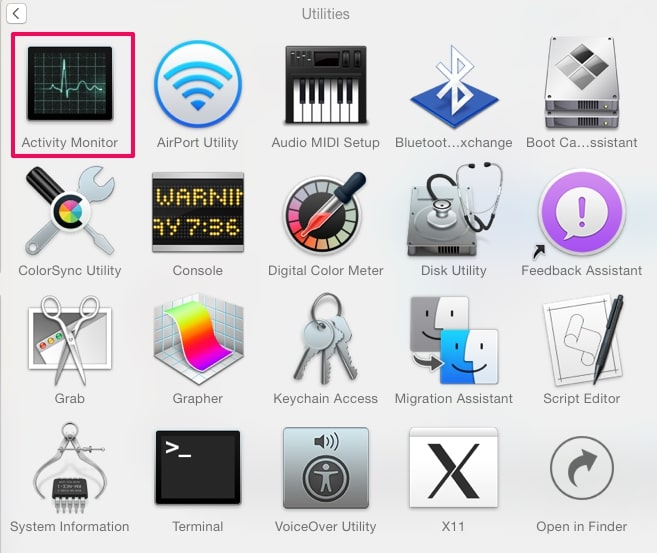
3. In the Activity Monitor look for any suspicious processes, belonging or related to Libecomlodr.dylib:
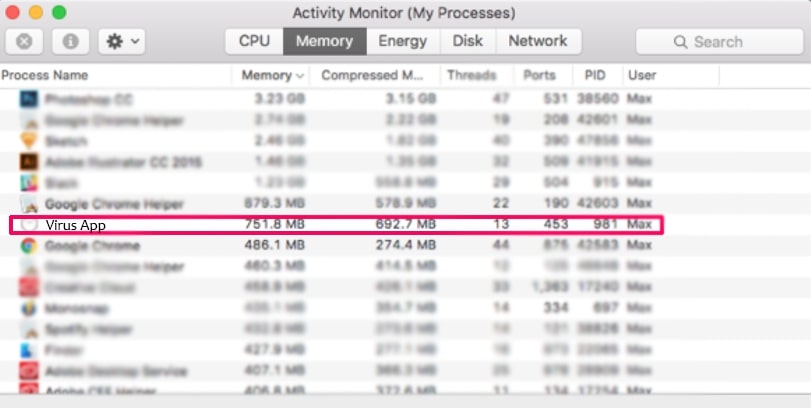
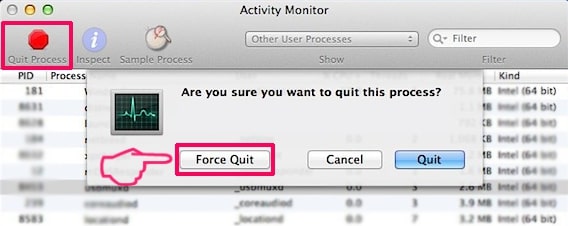
4. Click on the "Go" button again, but this time select Applications. Another way is with the ⇧+⌘+A buttons.
5. In the Applications menu, look for any suspicious app or an app with a name, similar or identical to Libecomlodr.dylib. If you find it, right-click on the app and select “Move to Trash”.
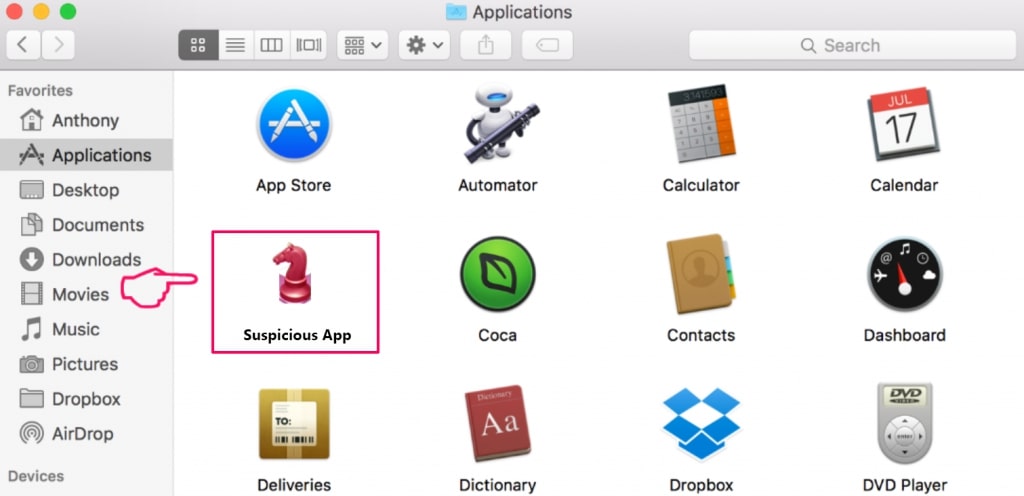
6. Select Accounts, after which click on the Login Items preference. Your Mac will then show you a list of items that start automatically when you log in. Look for any suspicious apps identical or similar to Libecomlodr.dylib. Check the app you want to stop from running automatically and then select on the Minus (“-“) icon to hide it.
7. Remove any leftover files that might be related to this threat manually by following the sub-steps below:
- Go to Finder.
- In the search bar type the name of the app that you want to remove.
- Above the search bar change the two drop down menus to “System Files” and “Are Included” so that you can see all of the files associated with the application you want to remove. Bear in mind that some of the files may not be related to the app so be very careful which files you delete.
- If all of the files are related, hold the ⌘+A buttons to select them and then drive them to “Trash”.
In case you cannot remove Libecomlodr.dylib via Step 1 above:
In case you cannot find the virus files and objects in your Applications or other places we have shown above, you can manually look for them in the Libraries of your Mac. But before doing this, please read the disclaimer below:
1. Click on "Go" and Then "Go to Folder" as shown underneath:
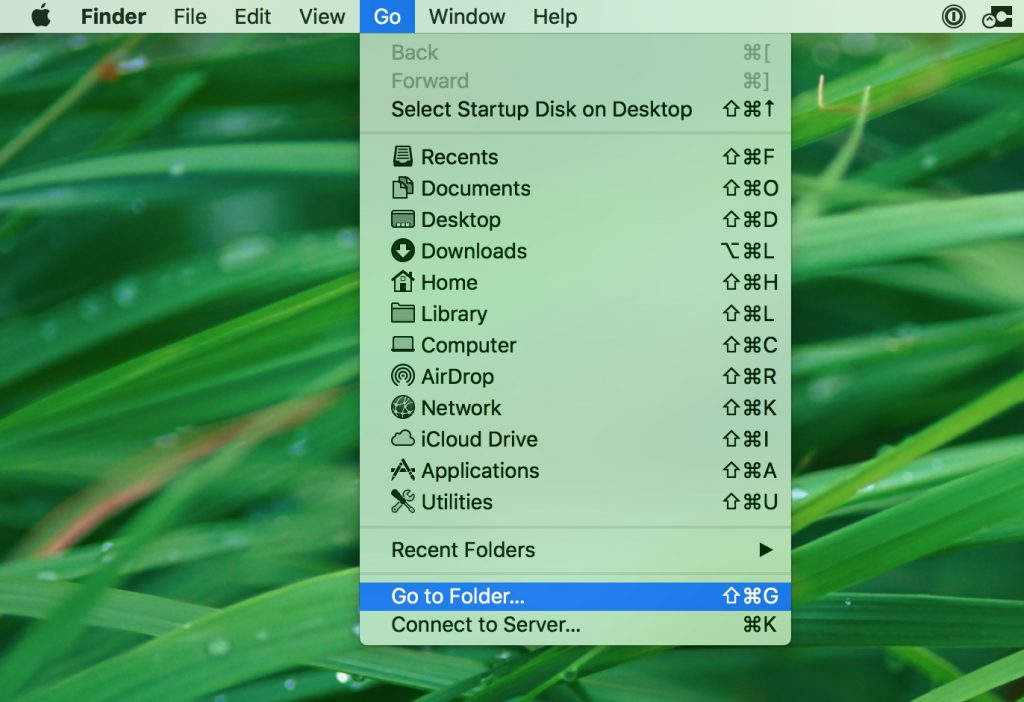
2. Type in "/Library/LauchAgents/" and click Ok:
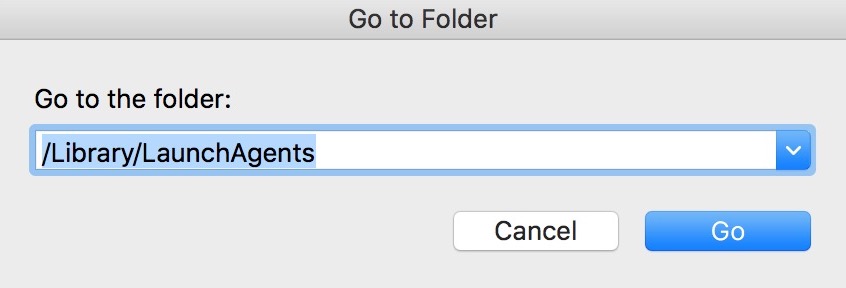
3. Delete all of the virus files that have similar or the same name as Libecomlodr.dylib. If you believe there is no such file, do not delete anything.
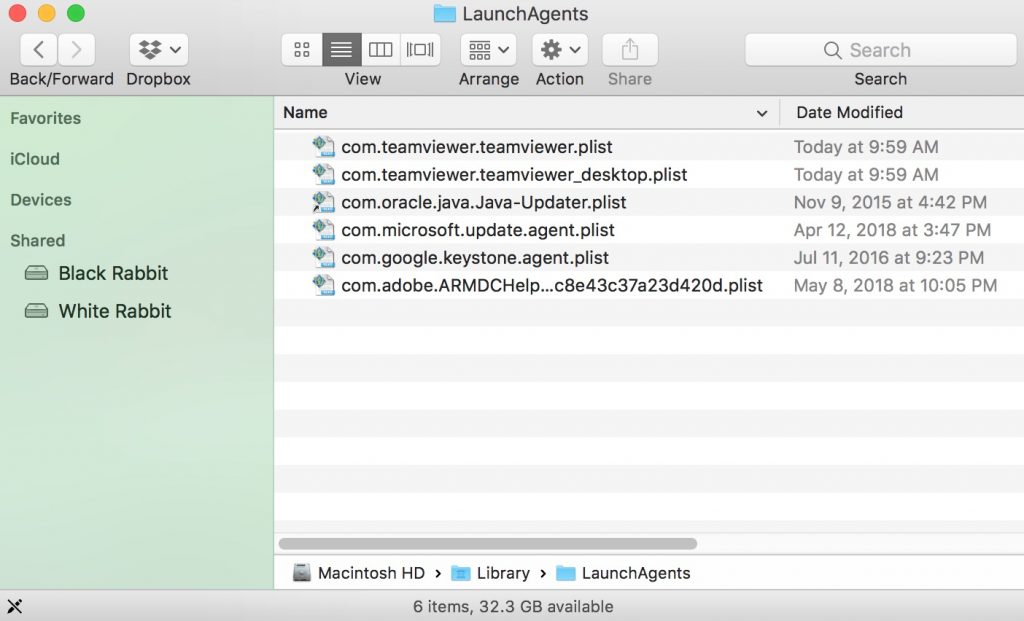
You can repeat the same procedure with the following other Library directories:
→ ~/Library/LaunchAgents
/Library/LaunchDaemons
Tip: ~ is there on purpose, because it leads to more LaunchAgents.
Step 3: Remove Libecomlodr.dylib – related extensions from Safari / Chrome / Firefox
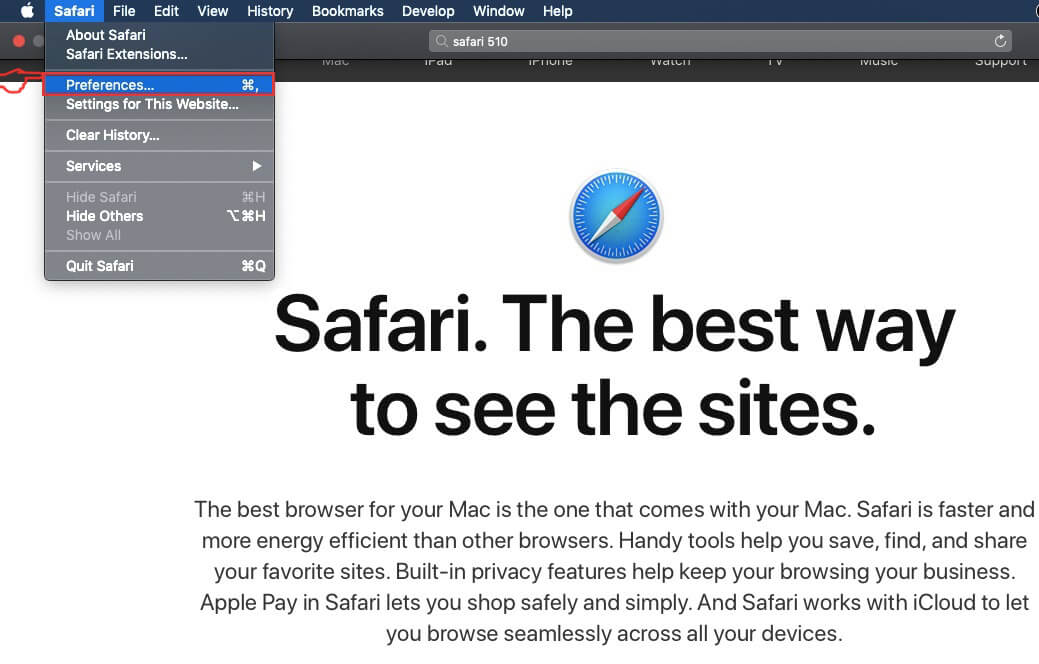

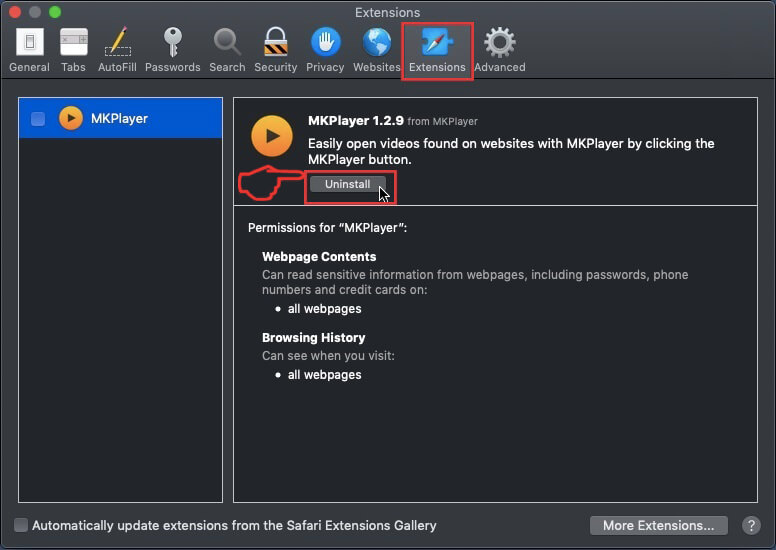
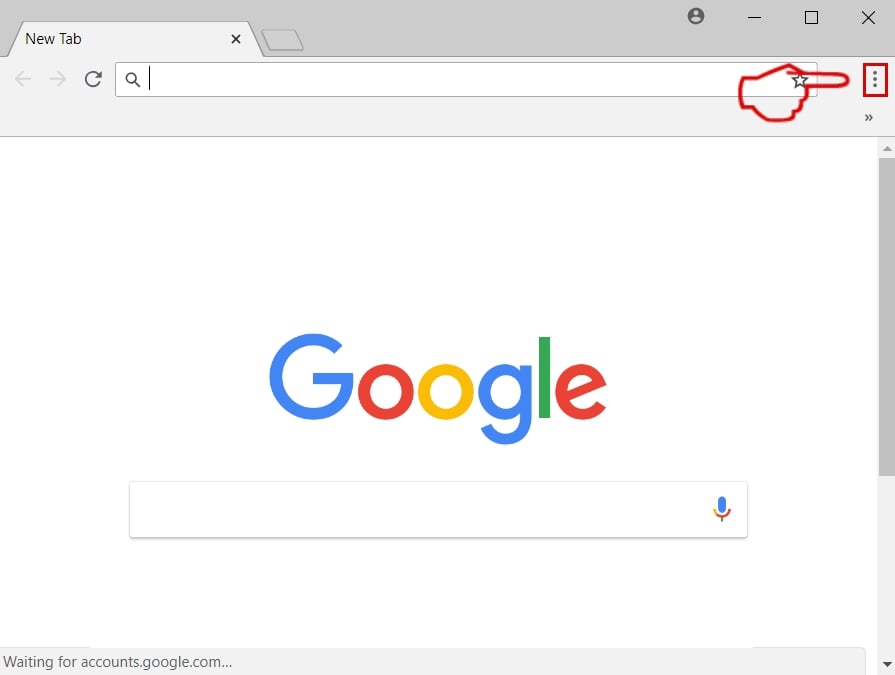
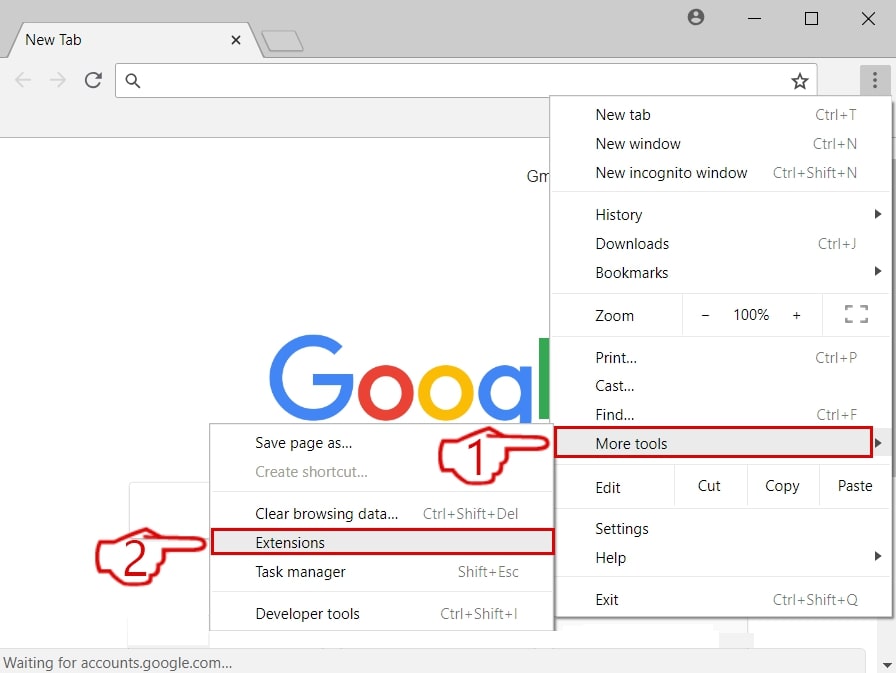
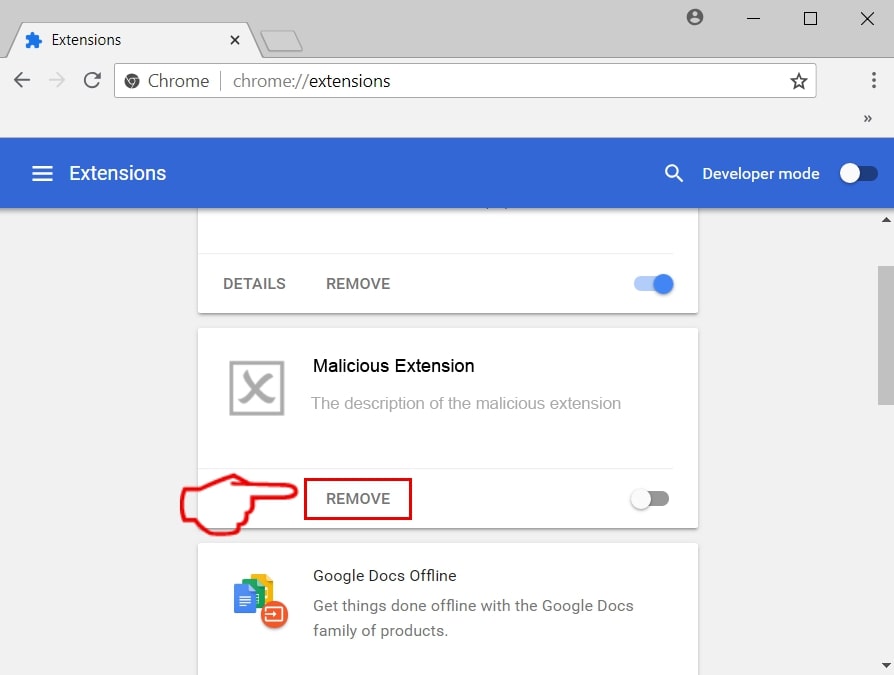
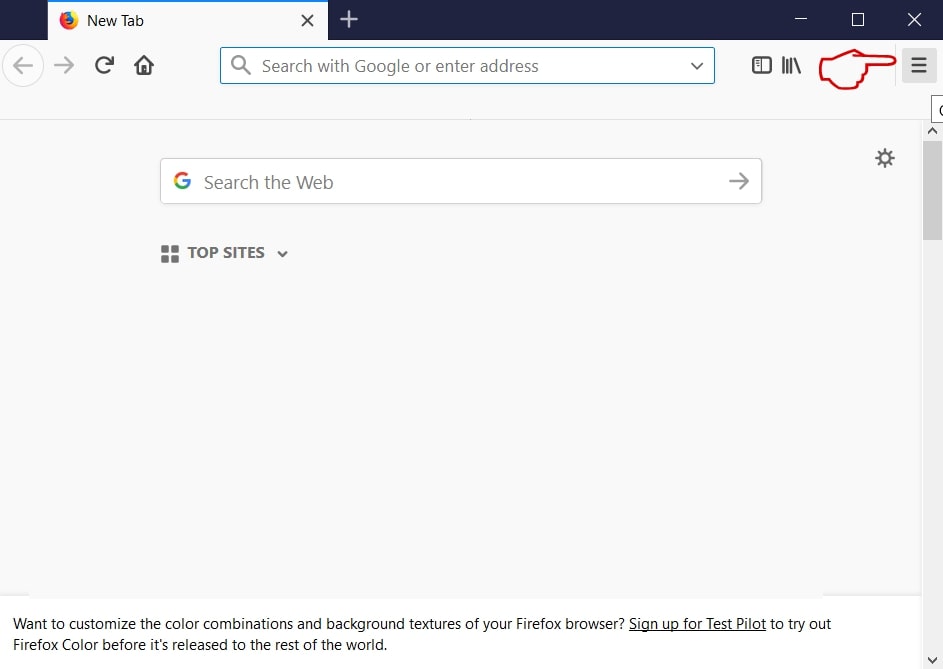
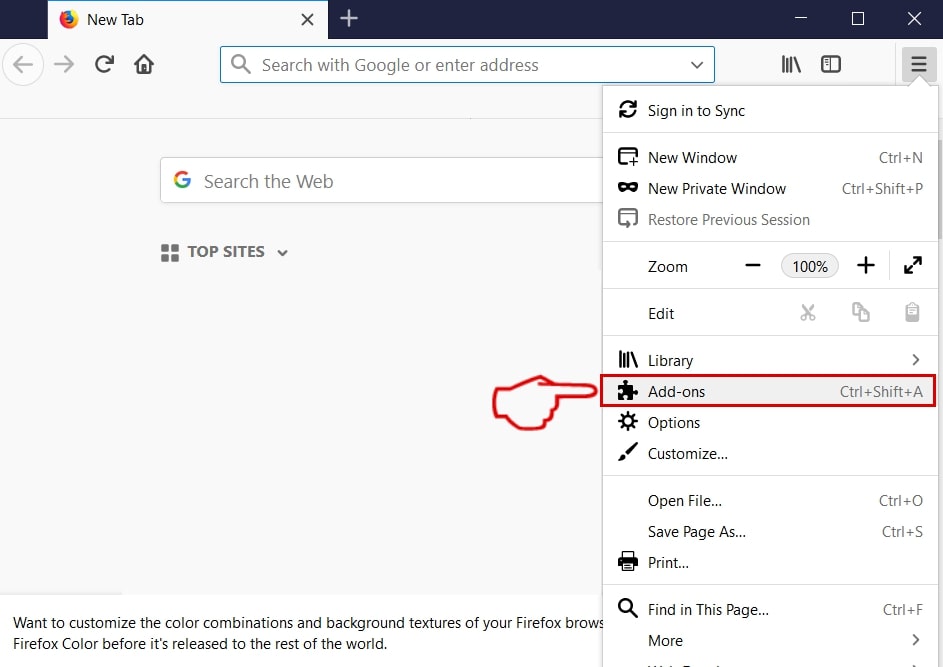
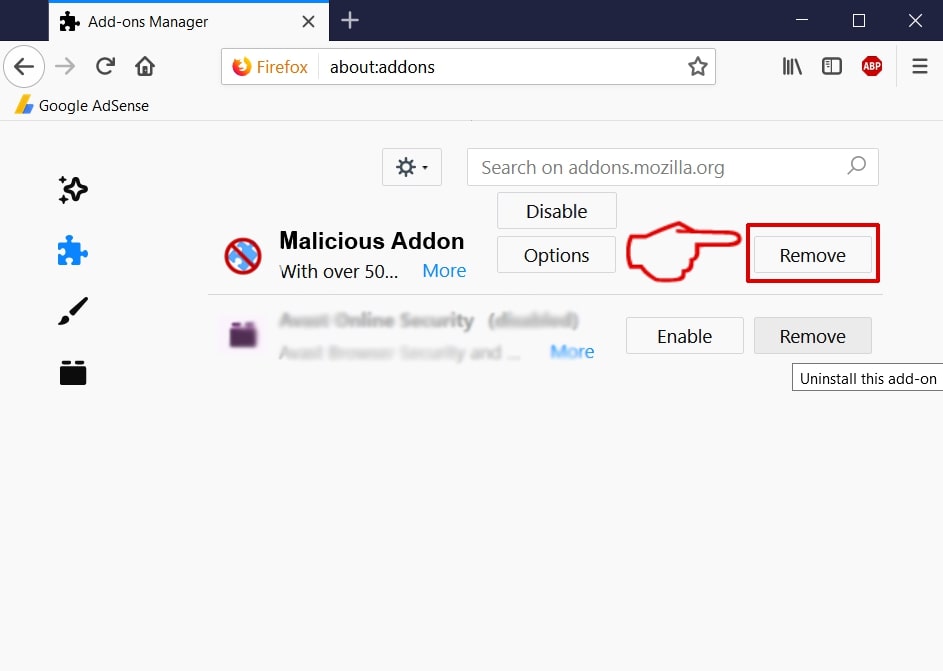
Libecomlodr.dylib-FAQ
What is Libecomlodr.dylib on your Mac?
The Libecomlodr.dylib threat is probably a potentially unwanted app. There is also a chance it could be related to Mac malware. If so, such apps tend to slow your Mac down significantly and display advertisements. They could also use cookies and other trackers to obtain browsing information from the installed web browsers on your Mac.
Can Macs Get Viruses?
Yes. As much as any other device, Apple computers do get malware. Apple devices may not be a frequent target by malware authors, but rest assured that almost all of the Apple devices can become infected with a threat.
What Types of Mac Threats Are There?
According to most malware researchers and cyber-security experts, the types of threats that can currently infect your Mac can be rogue antivirus programs, adware or hijackers (PUPs), Trojan horses, ransomware and crypto-miner malware.
What To Do If I Have a Mac Virus, Like Libecomlodr.dylib?
Do not panic! You can easily get rid of most Mac threats by firstly isolating them and then removing them. One recommended way to do that is by using a reputable malware removal software that can take care of the removal automatically for you.
There are many Mac anti-malware apps out there that you can choose from. SpyHunter for Mac is one of the reccomended Mac anti-malware apps, that can scan for free and detect any viruses. This saves time for manual removal that you would otherwise have to do.
How to Secure My Data from Libecomlodr.dylib?
With few simple actions. First and foremost, it is imperative that you follow these steps:
Step 1: Find a safe computer and connect it to another network, not the one that your Mac was infected in.
Step 2: Change all of your passwords, starting from your e-mail passwords.
Step 3: Enable two-factor authentication for protection of your important accounts.
Step 4: Call your bank to change your credit card details (secret code, etc.) if you have saved your credit card for online shopping or have done online activiites with your card.
Step 5: Make sure to call your ISP (Internet provider or carrier) and ask them to change your IP address.
Step 6: Change your Wi-Fi password.
Step 7: (Optional): Make sure to scan all of the devices connected to your network for viruses and repeat these steps for them if they are affected.
Step 8: Install anti-malware software with real-time protection on every device you have.
Step 9: Try not to download software from sites you know nothing about and stay away from low-reputation websites in general.
If you follow these reccomendations, your network and Apple devices will become significantly more safe against any threats or information invasive software and be virus free and protected in the future too.
More tips you can find on our MacOS Virus section, where you can also ask any questions and comment about your Mac problems.
About the Libecomlodr.dylib Research
The content we publish on SensorsTechForum.com, this Libecomlodr.dylib how-to removal guide included, is the outcome of extensive research, hard work and our team’s devotion to help you remove the specific macOS issue.
How did we conduct the research on Libecomlodr.dylib?
Please note that our research is based on an independent investigation. We are in contact with independent security researchers, thanks to which we receive daily updates on the latest malware definitions, including the various types of Mac threats, especially adware and potentially unwanted apps (PUAs).
Furthermore, the research behind the Libecomlodr.dylib threat is backed with VirusTotal.
To better understand the threat posed by Mac malware, please refer to the following articles which provide knowledgeable details.


